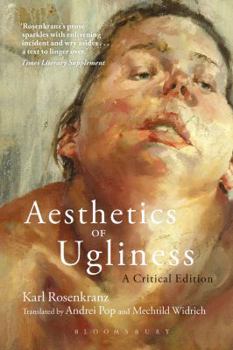Aesthetics of Ugliness: A Critical Edition
Select Format
Select Condition 
Book Overview
In this key text in the history of art and aesthetics, Karl Rosenkranz shows ugliness to be the negation of beauty without being reducible to evil, materiality, or other negative terms used it's conventional condemnation. This insistence on the specificity of ugliness, and on its dynamic status as a process afflicting aesthetic canons, reflects Rosenkranz's interest in the metropolis - like Walter Benjamin, he wrote on Paris and Berlin - and his...
Format:Paperback
Language:English
ISBN:1350022926
ISBN13:9781350022928
Release Date:August 2017
Publisher:Bloomsbury Academic
Length:344 Pages
Weight:1.25 lbs.
Dimensions:0.7" x 6.1" x 9.2"
Customer Reviews
0 rating





